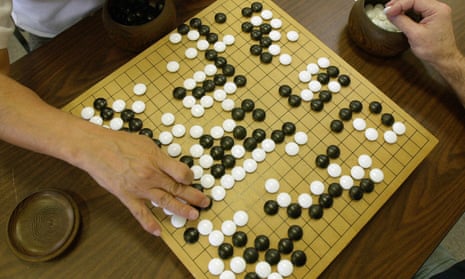Here’s a lesson for Mark Zuckerberg: if you’re trying to overshadow someone else’s big day, it’s best to make sure you have something good to do it with. Otherwise you just look a bit petty.
On Wednesday morning, Zuckerberg posted a link on Facebook to a scientific paper from a group of AI researchers at his company.
“Scientists have been trying to teach computers to win at Go for 20 years,” he wrote. “We’re getting close, and in the past six months we’ve built an AI that can make moves in as fast as 0.1 seconds and still be as good as previous systems that took years to build.”
The academic paper confirmed that the Facebook research team had successfully built a Go program that took third place in a competition between various other machine players. Not bad.
That paper was an updated version of a paper first uploaded to Arxiv in November 2015, confirming that Facebook had made great strides in its AI project. Good for Facebook.
Ten hours later, Google dropped its own announcement: its subsidiary DeepMind had built a Go program that could consistently beat every other Go program ever built, as well as, for the first time ever, a professional-level human player.
Oh, and that match with the human player? It was with the three-time, reigning, European champion Fan Hui, and it took place in DeepMind’s headquarters in London, in October 2015. A month before Facebook published even the first draft of its own Go-playing robot’s performance.
While we’re looking at timings, there’s another interesting coincidence: After 19 November 2015, there wasn’t a peep out of either company about Go until 25 January, when Google told the press that it had an announcement about Go coming out on 27 January. Just a day later, on 26 January, Facebook’s own Go paper was updated and Zuckerberg made his announcement, giving the company a glorious half-day on top of the Go world, before it all came crashing down on 27 January.
Sometimes it’s best to let other people have their moment in the spotlight. Maybe this time Zuckerberg should just carry on building his home automation AI and wait until this all blows over, or until we all die at the hands of a Google-built superintelligent Go-playing computer.

Comments (…)
Sign in or create your Guardian account to join the discussion